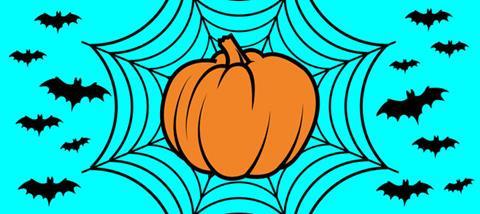
Halloween is now the second largest festival in the calendar. It’s a big deal. But should our children and young people engage with it?
Yes, they should
Humans have always used culture to ponder morbid themes such as fear, death and the afterlife. To disqualify a Christian from this seems odd when the Bible itself throbs with gratuitous murder, baby-eating monsters and even a ghost or two (1 Samuel 22;Revelation 12:4; Judges 3:24).
If scripture gives space to horrible things without condoning them, why can’t Halloween do the same?
Fears that Halloween is a recruiting tool for witchcraft are often born out of Christian urban myths and evangelical conspiracy theories. Besides, if we can’t take part due to its pagan origins, let’s boycott the Olympics and ban Christmas trees while we’re at it.
“Halloween glorifies death!” shout the critics. But does it really? Most Halloween parties are all laughs and squeals. They turn scary things into that admirable, noble trait: fun. It’s an ideal way to celebrate a key biblical notion: that “death has lost its sting”.
When we wear the ghost mask we don’t glorify death; we literally laugh in its face. Maybe the terrified Christian crossing himself in Tesco’s pumpkin aisle is guiltier of ‘glorifying’ evil.
Growing up I mocked the Christian youth workers at school. Their Philippians 4:8-based insistence on thinking only of ‘nice things’ made them like aliens to me. How amazing, then, to finally meet God in the dark.
Horror films like The Exorcist obeyed the same verse by showing me what was ‘true’: that evil and the supernatural might be real after all. Halloween was fun, but as a non-churchgoer it helped me take death and the afterlife more seriously, which led me right to God.
Look, if your kids or teens despise morbid things, don’t force them to dress as zombies. That would be weird. But so many kids are drawn to gross and horrible things, it’s become an established hook in education. So why demonise them for perfectly normal curiosity? The Bible offers a safe space to explore monsters, ghosts, death and gore. Are we too scared or self-righteous to follow its spooky lead?
Rev Peter Laws
is an author, journalist, YouTube horror host and church minister. He defends morbid interest in his latest book The Frighteners: Why We Love Monsters, Ghosts, Death and Gore. Peter was a youth pastor for six years.

No, they shouldn’t
Let me explain why I am negative about Halloween. First, Halloween deceives us about evil. It creates a cartoon version of evil as trivial, harmless fun that no one could possibly see as a threat.
Yet all evil is serious and any messing with supernatural evil is particularly so. To fool around with evil is a fool’s game.
Second, Halloween distracts us about evil. It presents evil in terms of the obvious and the spectacular; things that proclaim their identity with fangs and claws, cackles and cloaks.
Yet evil is at its most seductive when it is silent and subtle. The most dangerous evils are not clumsy figures in five-quid skeleton outfits knocking on your door; they are infinitely better disguised.
In the real world the deadliest evil doesn’t turn up with nocturnal cries of ‘Trick or treat!’ Instead, it tiptoes around unannounced in broad daylight. It is there in the sudden opportunity to cheat in an exam, the gentle request to submit an inflated expense claim or the quiet invitation to vote in favour of something illegal.
The problem with the road to hell is that it never states its destination. By focusing on the recognisable and grotesque, Halloween obscures the fact that most evil wears a charming face.
Finally, Halloween deniesthe defeat of evil. In Halloween, supernatural evil is presented as unchallenged and victorious.
Yet as a Christian I believe that’s only half of the story, and the darkest half at that. The reality is that evil was defeated on the cross and that one day the crucified King will return and abolish even the memory of it forever.
That, not Halloween, is the story I want to celebrate.
Rev Canon J. John
is an evangelist, minister, speaker, broadcaster and writer. He has written several books across a range of subjects including the Theology for Little People series to help children understand biblical truth.




























